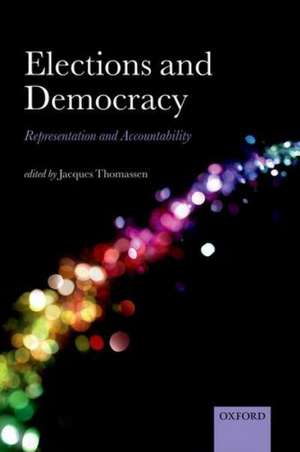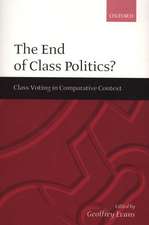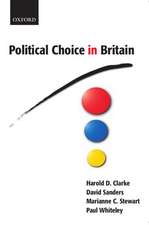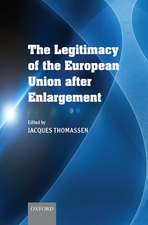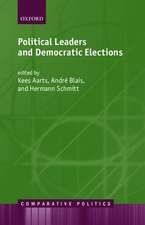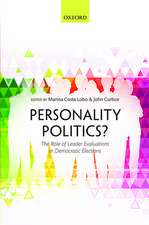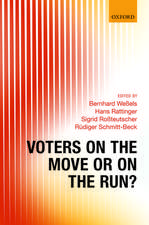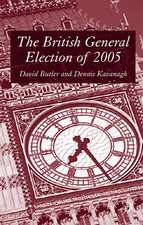Elections and Democracy: Representation and Accountability
Editat de Jacques Thomassenen Limba Engleză Hardback – 3 iul 2014
Preț: 658.37 lei
Preț vechi: 944.24 lei
-30% Nou
Puncte Express: 988
Preț estimativ în valută:
125.100€ • 131.05$ • 104.02£
125.100€ • 131.05$ • 104.02£
Carte tipărită la comandă
Livrare economică 03-09 aprilie
Preluare comenzi: 021 569.72.76
Specificații
ISBN-13: 9780198716334
ISBN-10: 0198716338
Pagini: 300
Dimensiuni: 167 x 241 x 23 mm
Greutate: 0.6 kg
Editura: Oxford University Press
Colecția OUP Oxford
Locul publicării:Oxford, United Kingdom
ISBN-10: 0198716338
Pagini: 300
Dimensiuni: 167 x 241 x 23 mm
Greutate: 0.6 kg
Editura: Oxford University Press
Colecția OUP Oxford
Locul publicării:Oxford, United Kingdom
Notă biografică
Jacques Thomassen is a member of the Netherlands Royal Academy of Arts and Sciences. His main research interests are in democratic theory, political representation, electoral behaviour and legitimacy. He is author and editor of numerous publications including The European Voter (Oxford University Press 2005), The Legitimacy of the European Union after Enlargement (Oxford University Press 2009), and (with Peter Mair) Political Representation and European Union Governance. He was a Visiting Professor at the Universities of Michigan, Harvard, Mannheim, the Australian National University and the European University Institute in Florence. He is a co-founder of the Comparative Study of Electoral Systems (CSES). He is Distinguished Professor of Political Science at the University of Twente
